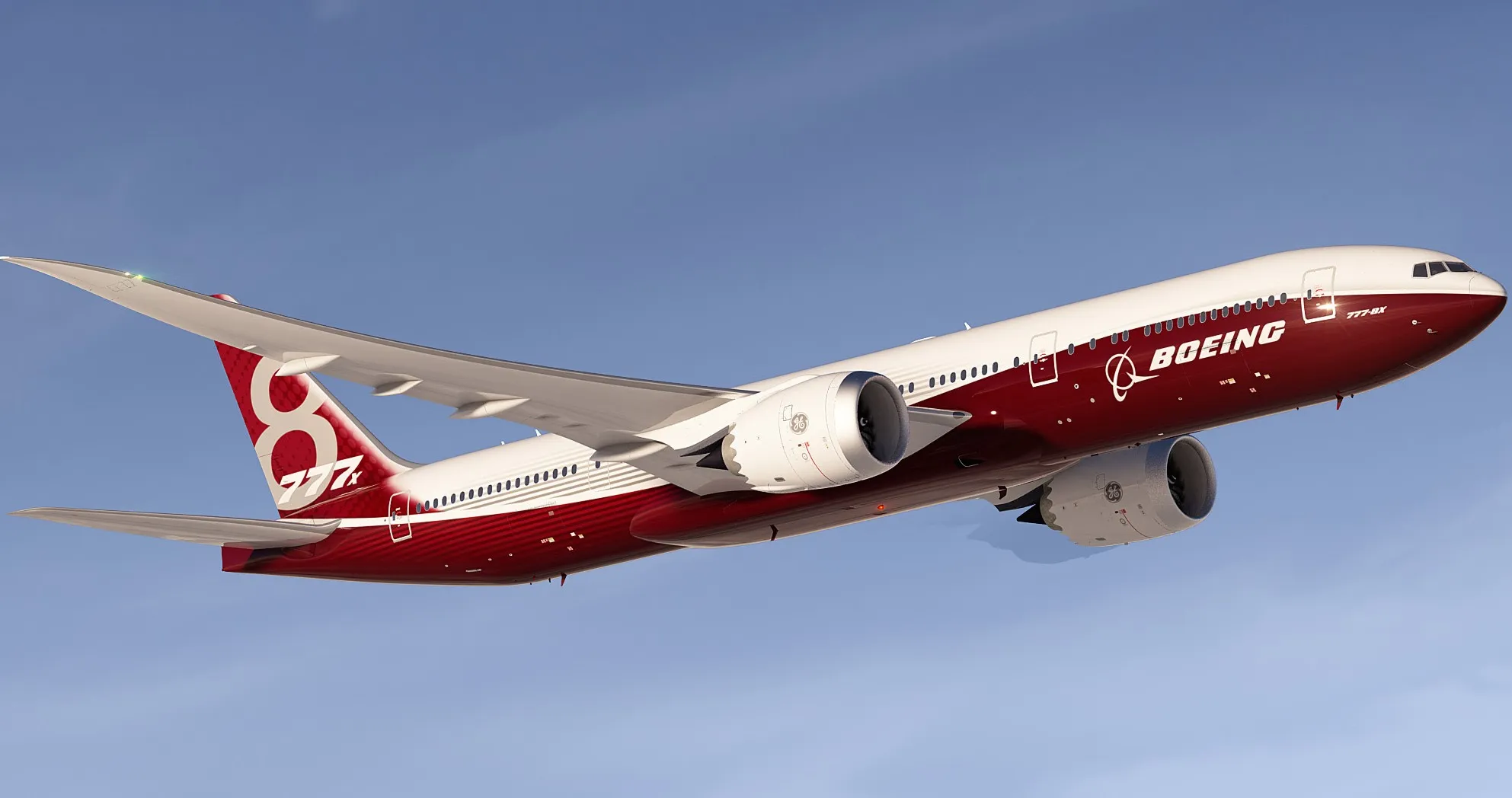
Boeing confident of winning Qantas ultra-long-range challenge
Sep 22, 2017

Boeing expresses strong confidence in securing Qantas' ultra-long-range challenge, which seeks an aircraft capable of connecting Sydney to London non-stop. The aerospace giant believes its latest models, particularly the 777X and the Dreamliner series, are ideally suited for such extensive routes, offering advanced technology, fuel efficiency, and passenger comfort. Boeing's commitment to innovation and its track record in long-haul aviation position it as a formidable contender for Qantas' ambitious plans. The company's strategic partnerships and focus on sustainability further enhance its proposal, making it well-prepared to meet the airline's evolving needs in the competitive aviation market.
Boeing's Ultra-Long-Range Aircraft and Qantas' Challenge
Boeing is strategically positioning itself to win the Qantas ultra-long-range challenge, showcasing its technological advancements and robust aircraft lineup. With airlines increasingly focusing on efficiency and passenger experience, the competition to design ultra-long-range aircraft has intensified.
Qantas has embarked on a mission to introduce non-stop flights from Australia to the UK and the US, aiming to enhance its global connectivity. This initiative demands aircraft that can sustain long-haul flights while ensuring passenger comfort and operational efficiency. Boeing, with its experience and expertise, is well-positioned to meet these demands.
Technological Advancements in Boeing Aircraft
Boeing’s commitment to innovation is evident in its latest aircraft models, such as the Boeing 777X and Boeing 787 Dreamliner. These aircraft feature cutting-edge technology designed specifically for ultra-long-range operations. Key innovations include:
| Feature | Description |
|---|---|
| Advanced Aerodynamics | Improved wing designs that reduce drag and enhance fuel efficiency. |
| Composite Materials | Lighter materials that contribute to lower operational costs. |
| Fuel-efficient Engines | Engines that provide maximum thrust while minimizing fuel consumption. |
| Enhanced Cabin Experience | Improved pressurization and humidity levels for passenger comfort. |
These features not only ensure that Boeing aircraft can fly longer distances but also prioritize passenger comfort during extended journeys. As Qantas looks to operate ultra-long-haul flights, the importance of these attributes cannot be overstated.
Competitive Edge Over Airbus
While Airbus is a formidable competitor in the long-haul market with its A350 series, Boeing’s offerings have distinct advantages. The Boeing 777X, for instance, boasts a larger passenger capacity and increased range compared to its Airbus counterparts. This allows Qantas to maximize revenue potential on ultra-long-haul flights.
Furthermore, Boeing's established relationships with airlines, including Qantas, provide a level of trust and reliability that is crucial in the aviation industry. The seamless integration of Boeing’s aircraft into Qantas’ existing fleet could be a decisive factor in securing this deal.
Environmental Considerations
In today’s aviation landscape, sustainability is paramount. Boeing is committed to reducing its carbon footprint, aligning with Qantas’ goal of achieving net-zero emissions by 2050. The use of sustainable aviation fuels (SAF) and continued investment in fuel-efficient technologies are central to this initiative.
As airlines face increasing pressure to reduce their environmental impact, Boeing’s proactive approach in developing greener technologies can be a significant selling point. Qantas’ commitment to sustainability will likely factor into its decision-making process when selecting an aircraft for ultra-long-haul routes.
Market Trends and Demand for Ultra-Long-Range Flights
The demand for ultra-long-range flights is on the rise, driven by increasing global travel and changing passenger preferences. Business travelers and tourists alike are seeking non-stop options that save time while providing comfort. Boeing is tapping into this trend by enhancing its aircraft capabilities to meet the evolving needs of airlines.
The COVID-19 pandemic has fundamentally changed how people travel, with many passengers now prioritizing safety and convenience. Boeing's focus on advanced cabin features and health protocols ensures that its aircraft will be well-received in the post-pandemic world.
Conclusion: Boeing’s Confident Outlook
As Qantas prepares to challenge the aviation industry with its ultra-long-range ambitions, Boeing remains confident in its ability to win this crucial contract. With an innovative lineup of aircraft, a commitment to sustainability, and a strong focus on passenger experience, Boeing is set to be a key player in the future of long-haul travel.
The combination of advanced technology, environmental initiatives, and a solid understanding of market demands positions Boeing as a strong contender. As Qantas evaluates its options, the features and benefits offered by Boeing aircraft will undoubtedly play a significant role in shaping the future of ultra-long-haul travel.
Related Articles

Explore Thailand: The Best Islands to Visit for Paradise, Adventure, and Relaxation

The Ultimate Guide to the Best Islands in Thailand for Your Next Getaway

Do babies need passports? How to get a passport for a newborn

How to get a U.S. passport fast: here’s how to expedite the process

What is Mobile Passport Control: 5 reasons why you should use it

SENTRI vs. Global Entry: A detailed guide

Do you need a passport to go to the Bahamas? Let’s find out

Do you need a passport to go to Mexico? A detailed guide

Do you need a passport to go to Canada? We got the answer

Do You Need a Passport for a Cruise: An Essential Travel Guide

Booster Seat Requirements: All the Rules to Follow in Your Rental Car

What Are the World’s Most Powerful Passports, and How Does Yours Rank?

How to Take a Passport Photo at Home: A Helpful Guide

You've got to have heart! Southwest's new livery

Your opinion: Should water be free on low cost carriers?

Young women bolder than guys as solo travellers
